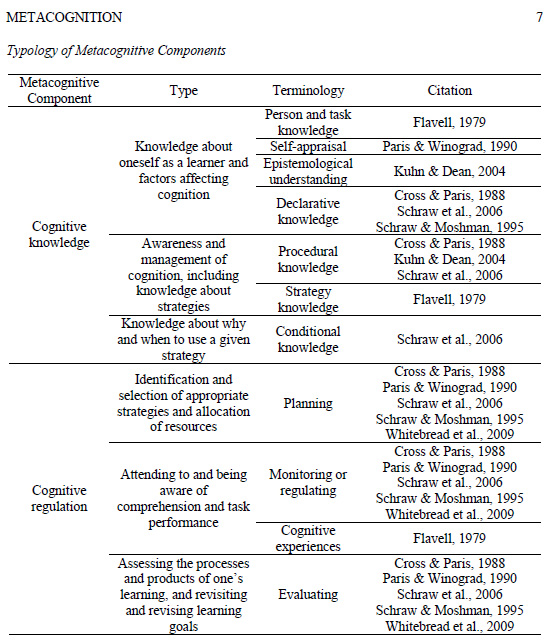Metacognition: A Literature Review Research Report — from Pearson by Emily Lai, April 2011
Abstract
Metacognition is defined most simply as “thinking about thinking.” Metacognition consists of two components: knowledge and regulation. Metacognitive knowledge includes knowledge about oneself as a learner and the factors that might impact performance, knowledge about strategies, and knowledge about when and why to use strategies. Metacognitive regulation is the monitoring of one’s cognition and includes planning activities, awareness of comprehension and task performance, and evaluation of the efficacy of monitoring processes and strategies. Recent research suggests that young children are capable of rudimentary forms of metacognitive thought, particularly after the age of 3. Although individual developmental models vary, most postulate massive improvements in metacognition during the first 6 years of life. Metacognition also improves with appropriate instruction, with empirical evidence supporting the notion that students can be taught to reflect on their own thinking. Assessment of metacognition is challenging for a number of reasons: (a) metacognition is a complex construct; (b) it is not directly observable; (c) it may be confounded with both verbal ability and working memory capacity; and (d) existing measures tend to be narrow in focus and decontextualized from in-school learning. Recommendations for teaching and assessing metacognition are made.
Keywords: metacognition, self-regulated learning
From DSC:
Also see Chapter 12 of:
- Ormrod, J. E. (2008). Human learning (5th ed.). Upper Saddle River, NJ: Pearson. ISBN 9780132327497.
…which has excellent further resources, additional literature reviews, learning strategies.









